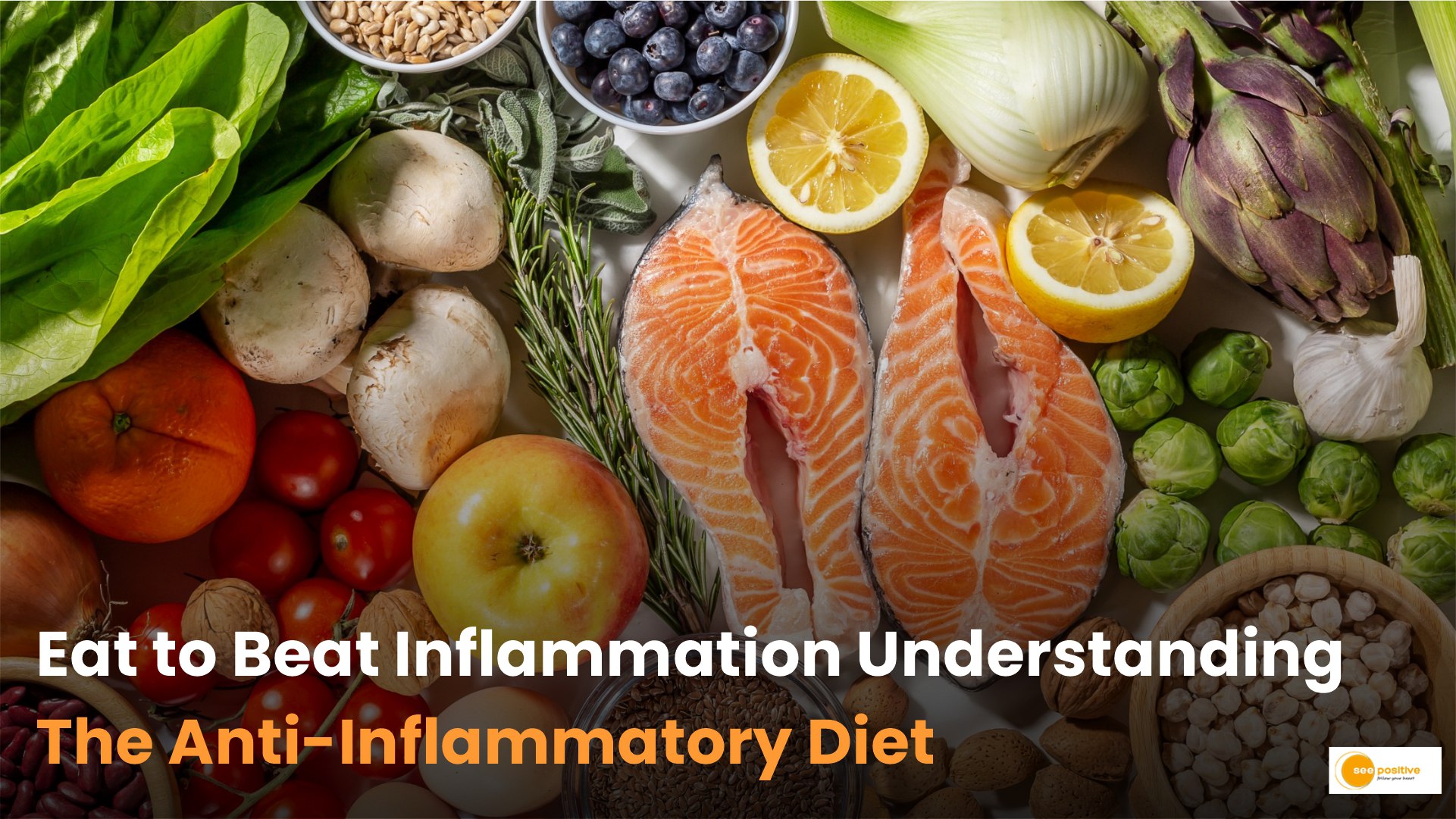Anti-Inflammatory Diet: An anti-inflammatory diet is a way of eating that helps reduce inflammation. Inflammation is a natural response that helps the body fight infections and heal injuries. However, when inflammation lasts too long, it can lead to health issues like arthritis, heart disease, and diabetes. Eating the right foods can lower this long-term inflammation and keep you healthier.
What Is Anti-Inflammatory Diet?
The anti-inflammatory diet focuses on foods rich in nutrients, vitamins, and antioxidants. These foods help your body fight inflammation. Fruits, vegetables, whole grains, healthy fats, and lean proteins are the main parts of this diet. It avoids processed foods, added sugars, and unhealthy fats, as these can increase inflammation.
What are the Benefits?
One of the biggest benefits of an anti-inflammatory diet is that it can help reduce the risk of chronic diseases. By eating more fresh foods and cutting down on processed items, your body gets the nutrients it needs to stay strong and balanced. This diet also supports better digestion, higher energy levels, and even improved mood. Many people who follow an anti-inflammatory diet notice they feel lighter and have fewer aches and pains.
Key Foods to Include
Fruits and vegetables are essential for an anti-inflammatory diet. These foods are rich in antioxidants, which protect cells from damage. Berries, leafy greens, and cruciferous vegetables like broccoli are especially good for fighting inflammation.
Whole grains like oats, brown rice, and quinoa are also important. They provide fiber, which helps keep digestion regular and promotes gut health. Healthy fats, like those found in olive oil, nuts, and seeds, also play a big role in reducing inflammation. Omega-3 fatty acids, found in fish like salmon and sardines, are known to reduce inflammation effectively.
Lean proteins, such as chicken, turkey, and plant-based proteins like beans, are good choices. Avoid red and processed meats, as they can increase inflammation.
Foods to Avoid
An anti-inflammatory diet recommends staying away from sugary drinks, refined carbs like white bread, and processed snacks. These foods can cause inflammation and add empty calories. Also, limit your intake of red meats and avoid trans fats, found in many fried and packaged foods.
Tips to Start Anti-Inflammatory Diet
If you’re new to this diet, start by adding more fresh fruits and vegetables to your meals. Swap refined grains for whole grains, and try to cook with olive oil instead of butter. You can also start eating fish a couple of times a week to increase your omega-3 intake.
Drink plenty of water, as staying hydrated helps your body remove toxins. Avoid sugary drinks and stick to water or herbal teas. Cooking more at home also makes it easier to follow this diet, as you can control what goes into your meals.
Things to Keep in Mind
Following an anti-inflammatory diet can improve your health and help prevent chronic diseases. By eating fresh, natural foods and avoiding processed options, you can lower inflammation and feel better overall. It’s a diet that not only supports physical health but also helps you feel your best every day. Start small, and gradually make changes that fit your lifestyle.
We advise that before starting an anti-inflammatory diet, you should consult a good dietitian and your physician.


